Funds Europe gained comments from Ireland experts about adapting to CP86, key regulations, lessons from FTX, in-demand skills, Irish employment trends, fund boards in ESG and due diligence challenges.
Paddy Walsh, head of regional coverage – Ireland, North America, CACEIS
How do you see the role of the fund board in delivering ESG?
Governance and oversight are one the key points for fund boards when it comes to ESG and climate risk. Board members do not necessarily need to be expert in this field but should have enough knowledge to ask the right questions and challenge the information being provided to them by the Manager. It is also critical that the information provided is consistent and accurate so that board members can get comfortable and reassured with the information provided. Therefore education is also is a key factor.
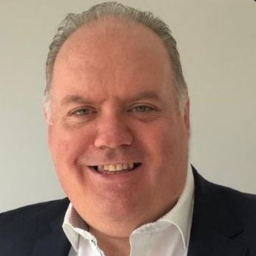
Board members must ensure they get adequate training and are continually updating their knowledge to ensure they are keeping up to date with the legal and regulatory changes in this area. Finally, board members must ensure that the ESG and climate risk message being conveyed by the funds they oversee is clear and understandable and in line with the fund documentation.
If there’s one piece of regulation to watch this year (not ESG), this is it…
The Individual Accountability Framework. The Central Bank enacted the Framework to promote positive behaviours in senior executives and enhance its ability to hold individuals to account for regulatory contraventions in an executive’s area of responsibility. Similar regimes have been introduced in other jurisdictions, including the UK where it is generally regarded as having achieved its objectives of improving governance and restoring trust in financial services.
There are some concerns in the Irish financial services sector about the effect personal liability will have on talent retention and how it may influence foreign firms when they consider investing in Ireland. However, based on the UK experience and provided there’s an appropriate balance between individual accountability and investor protection, the Framework should be viewed a positive development consistent with a mature regulatory environment.
Philip Dempsey, director, country head – Ireland, Highvern
Living and working in Ireland
Ireland is a particularly special jurisdiction to do business in given the collegiate and collaborative nature across all market participants in our industry. It’s a jurisdiction of choice for both managers and investors alike. In addition, our common law framework, our English-speaking population, location within the EU, and talent pool make Ireland a very attractive place to do business, particularly for firms like Highvern when executing a jurisdictional expansion strategy.
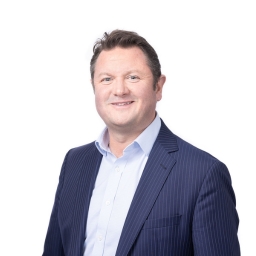 With a strong emphasis on developing the next generation across the industry, Ireland continues to attract and retain experienced and emerging talent. Over the last ten years, the regional strategy adopted has facilitated opportunities across the whole country.
With a strong emphasis on developing the next generation across the industry, Ireland continues to attract and retain experienced and emerging talent. Over the last ten years, the regional strategy adopted has facilitated opportunities across the whole country.
Aside from the obvious technical advantages of the jurisdiction itself, Ireland is vibrant, progressive and has an increasingly diverse population demographic. The industry-led development of the private market funds strategy across all key stakeholders continues to lead to more and varied employment opportunities.
How do you see the role of the fund board in delivering ESG?
A strong governance framework at the board level to execute the particular ESG strategy (whether it be an Article 8 or Article 9 fund) is key. Setting the right targets and having the ability the measure these at regular intervals while relying on the integrity of the data is fundamental to delivering an ESG strategy. There is an ever-growing reliance on technology as a key pillar to the success of ESG. This requires strong communication and transparency across all service providers to the fund board
Alan Meaney, CEO, Fund Recs
What lessons the funds industry can learn from the FTX collapse
There is a dangerous trap in tech investing of falling for the ‘cult of personality’. Just because the founder is a little weird and does unusual things doesn’t mean you shouldn’t question obvious governance shortcomings. The mistake a lot of investors made with FTX was piggybacking on the assumed due diligence of others. Large investors are especially susceptible to this risk when they aggressively compete with each other for ‘hot’ deals in a bull market.

FTX’s largest shareholders is a who’s who of powerful, well-known investment firms: NEA, IVP, Iconiq Capital, Third Point Ventures, Tiger Global, Altimeter Capital Management, Lux Capital, Mayfield, Insight Partners, Sequoia Capital, SoftBank, Lightspeed Venture Partners, Ribbit Capital, Temasek Holdings, BlackRock and Thoma Bravo and others invested a combined $2 billion in the company.
You might wonder how so many experienced investors made the decision to invest in FTX in the first place. A quick review of the company’s financial statements and corporate structures reveals a sea of red flags.
But we might be missing a basic truth of human behaviour: Even the most sophisticated investor can fall prey to the bandwagon effect. They don’t want to miss out on the next big thing, which they thought was crypto—especially when their primary competitors were getting in on the action. There is also a tendency to idolise a founder like we witnessed with Adam Neumann at WeWork. SBF seemed like a reasonable gamble to investors. The son of Stanford law professors, his shorts-wearing, video-game-playing persona was exactly what investors expected of someone in his position.
Ken Owens, partner, PwC
How do you see the role of the fund board in delivering ESG?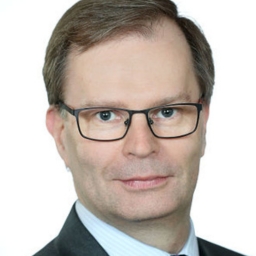 I see the role of the fund board in delivering on ESG as being critical. The responsibility for oversight of any organisation’s sustainability and environmental, social and governance matters lies firmly with the board of directors. The board is accountable to the shareholders for the long-term success of a fund and for ensuring that the commitments made in the fund prospectus or offering document are being met on a consistent basis. It is important that ESG is embedded into the DNA and long-term growth strategy and, therefore, funds need strong board leadership, including members who understand sustainability and ESG more broadly. The board should ensure that ESG is appropriately incorporated into the fund’s strategy, governance, risk management and corporate reporting. The board should ensure that its ESG priorities are understood and that defined targets and metrics are set, regularly monitored and appropriately disclosed to investors and stakeholders.
I see the role of the fund board in delivering on ESG as being critical. The responsibility for oversight of any organisation’s sustainability and environmental, social and governance matters lies firmly with the board of directors. The board is accountable to the shareholders for the long-term success of a fund and for ensuring that the commitments made in the fund prospectus or offering document are being met on a consistent basis. It is important that ESG is embedded into the DNA and long-term growth strategy and, therefore, funds need strong board leadership, including members who understand sustainability and ESG more broadly. The board should ensure that ESG is appropriately incorporated into the fund’s strategy, governance, risk management and corporate reporting. The board should ensure that its ESG priorities are understood and that defined targets and metrics are set, regularly monitored and appropriately disclosed to investors and stakeholders.
Finally, the board should ensure that high-quality data and information is available that is accurate for purposes of high-quality reporting. A recent PwC global investor survey highlighted that 78% of global investors believe that greenwashing is prevalent in corporate reporting. The survey highlighted the need for companies to improve their data, systems, and governance.
David Rochford, managing director, global head of public markets, MUFG Investor Services
Which skills are most in demand in the Irish Funds Industry?
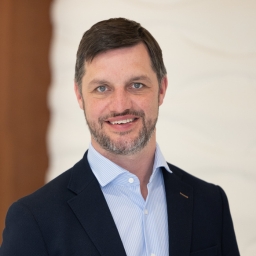
Skills in demand are directly correlated to where the industry currently is and where it is going. With the growth of private markets over the last several years, we’re seeing operational staff being trained to become more familiar with these asset classes. Although the requirements are like a typical hedge or traditional fund, the terminology, fund structures and process are different. At MUFG Investor Services, we’ve introduced a private markets academy to educate and train our staff in this space.
Additionally, with the industry moving from a historically manual and paper-based process to a data-driven model, the need for people skilled in technology for the purpose of understanding data, and designing related solutions, has become critically important. In the last few years, we’ve seen the rise of fintech and regtech firms in Ireland. And many larger corporations are undergoing transformational change, whether through acquisitions and the need to consolidate systems or technology transformation to meet clients’ need for data. Given this environment, we anticipate talent to continue to be attracted to these types of firms.
Finally, with the recent establishment and growth of management companies in Ireland, the need for compliance, risk and regulatory knowledge has increased, not only to ensure firms deliver for their clients but, more importantly, to meet their own regulatory requirements, which have increased substantially over the last 10 years.
Des Fullam, group chief regulatory officer, Carne Group
How We Adapted our business to CP86
CP86 focused on enhancing the strong governance of funds in Ireland. The Central Bank required increased resources and increased oversight on delegates. Management companies are expected to provide evidence of the oversight and appropriate challenge of their delegates should the CBI undertake an inspection.
Given there are now more than 200 management companies in Ireland, competition for experienced resources is tough. We have invested heavily in training and have opened regional offices enabling us to access the best talent across the country. We have focused on growing our talent pool to support our existing designated persons and to manage future succession planning.
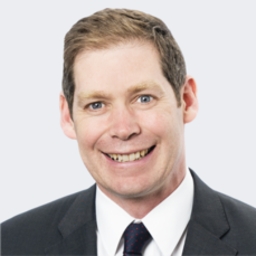 Investors in our funds trust us to get things right. As the largest third-party management company, we oversee a significant number of delegates, and we have thousands of pages of regulation and guidance to comply with. We realised that by coupling our regulatory experts with technology, we could free our team to spend more time focusing on important issues. Therefore, we invested heavily in developing our own technology, which supports the oversight of funds throughout the product lifecycle.
Investors in our funds trust us to get things right. As the largest third-party management company, we oversee a significant number of delegates, and we have thousands of pages of regulation and guidance to comply with. We realised that by coupling our regulatory experts with technology, we could free our team to spend more time focusing on important issues. Therefore, we invested heavily in developing our own technology, which supports the oversight of funds throughout the product lifecycle.
Our technology, Curator, manages client onboarding, stores all fund documentation and receives automated flows of data from delegates to enable ongoing oversight. We also use the system to store the output of our reviews, documenting any issues or breaches. It provides transparency and an audit trail for our management and our clients on any issues and ultimately generates our quarterly board reports. The powerful combination of people and technology offers reassurance to our clients that we can meet their needs now and into the future.
Geraldine Dautun, CEO and founder, AQMetrics
If there is one piece of regulation to watch this year, this is it …
DORA or regulation EU 2022/2554 concerns “digital operational resilience” (a firm’s ability to withstand and adapt to disruptions in its digital operations while maintaining the continuity of critical business processes). DORA will be effective from the 17th of January 2025. Ireland must implement the DORA Amending Directive from the same date. The Amending Directive will align DORA to other Directives, including CRD IV, Solvency II, MiFID II, PSD2, UCITS and AIFMD.
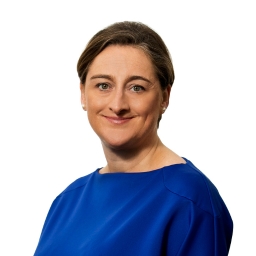
DORA aims to ensure that all types of ICT-related disruptions and threats can be prevented and mitigated by financial services firms. DORA impacts benchmark administrators; central counterparties; central securities depositories; credit institutions; crowdfunding service providers; crypto-asset service providers; electronic money institutions; fund management companies; issuers of asset-referenced tokens; insurance intermediaries; insurance and reinsurance undertakings; investment firms; payment institutions and trading venues. Only certain small firms may be excluded.
DORA also applies to critical third-party ICT service providers. These providers are identified as those fulfilling “a critical role in the functioning of the financial sector”. This includes cloud platforms and data analytics providers. The good news for the Irish funds industry is these ‘critical’ service providers will be subject to a newly established oversight framework.
In Ireland, many regulated firms have followed the Central Bank’s guidelines on outsourcing and/or operational resilience. Many DORA requirements are already implemented in the risk-related frameworks across these firms. Notwithstanding, DORA is one to watch as it impacts a firm’s governance and control frameworks, risk policies, risk processes, risk procedures and contractual arrangements for ICT service providers.
Roger Woolman, chief revenue officer, Deep Pool Financial Solutions
The top 3 employment trends in Ireland’s funds industry
Three key factors are shaping employment trends in the Irish funds industry.
1) Industry growth
In the five-year period ending December 2022, the number of Irish domiciled funds climbed 20% to a record 8,689, while total net assets rose 50% to approximately €3.7 trillion, making Ireland the second largest funds and asset management centre in Europe and third largest in the world. Strong growth in the number of funds being established and managed has brought increasing demand for skilled professionals across a variety of roles, including investment management, risk management, compliance and fund administration, with the sector now directly employing some 17,000 people.
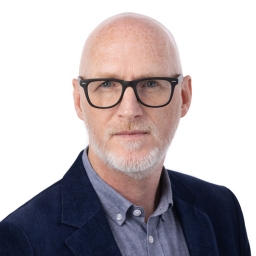 2) Regulation
2) Regulation
The ever-evolving regulatory environment continues to bolster demand for professionals skilled in compliance, risk management and the legal particularities surrounding fund operations. More regulation and tightened enforcement is forcing industry participants to recruit regulatory specialists and expand compliance teams to meet their regulatory responsibilities.
3) Technology and digital transformation
Technology has filtered into all areas of the value chain, from portfolio management to investor servicing. But the pace of automation, data-driven decision making and digital transformation is accelerating, and no firm can afford to be left behind.
Job roles and the skills required to fulfil them are changing in response. Experts in areas such as data analysis, cybersecurity and digital technologies are in high demand among funds companies and their service providers. Developments in distributed ledger technologies, cryptocurrencies and artificial intelligence are also having a growing impact, affecting the skills needed and roles employees perform.
© 2023 funds europe





